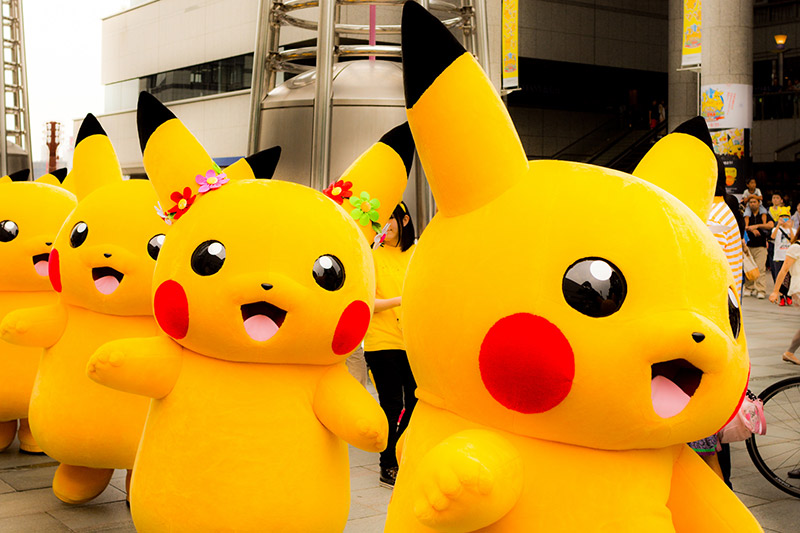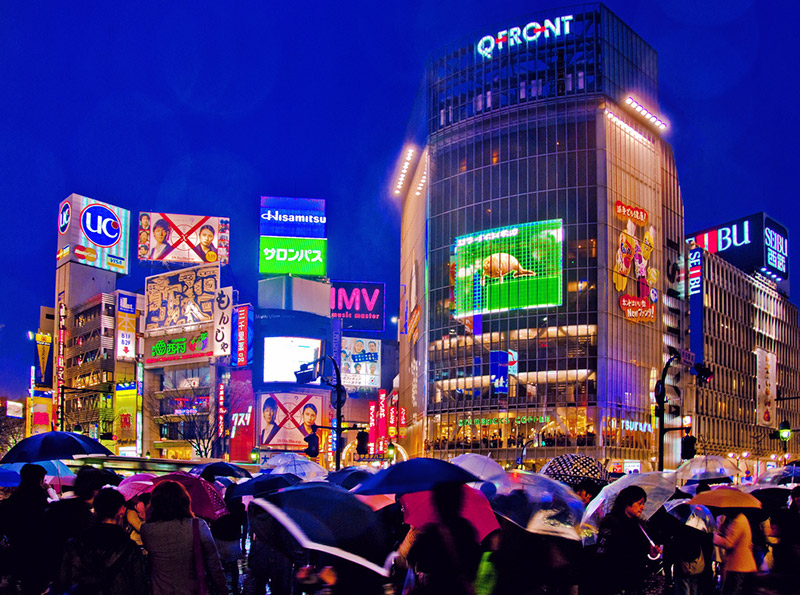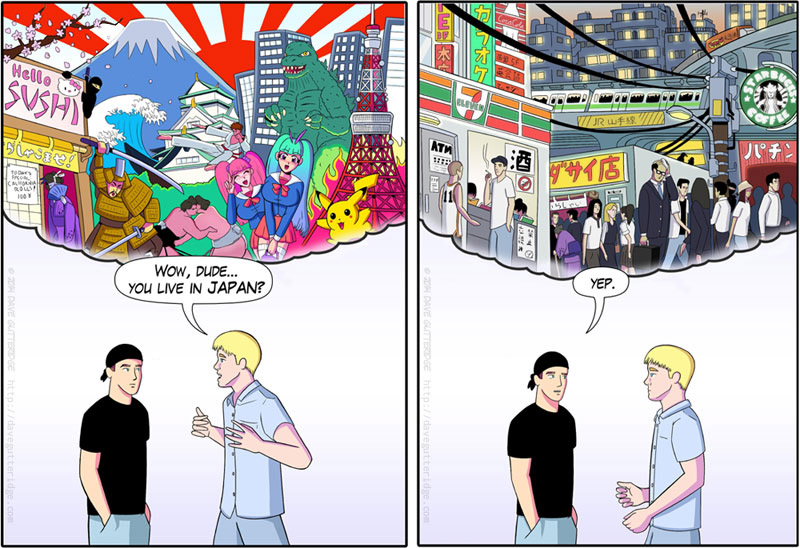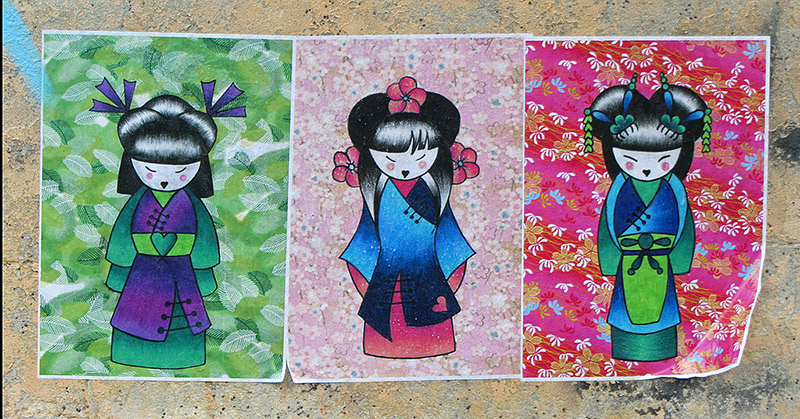Ukiyo-e. Kabuki. The Shinkansen. Akira Kurosawa. Haruki Murakami. Hello Kitty. Attack on Titan.
So, is Japan really creative? It seems like such a silly question. Why even bother to ask it?
I imagine that most people reading this will wonder why I'm questioning such a self-evident truth. After all, there is even a study done by Adobe which found Japan to be the country perceived most creative in the world.
However, this same study revealed something interesting. Japanese people themselves do not see Japan as creative. In fact, they were the least likely among the surveyed countries to describe themselves as creative or as "people who create."
Within Japan, in business circles and in mass media, "innovation" has become a buzzword in recent years. But the practical model isn't Sony. It's Silicon Valley.
There's a major gap between how outsiders view Japan and how Japan views itself. And I aim to find out why.
Japanese Creativity

Japan is certainly the birthplace of many creative things.
Visual storytelling mediums such as film and manga have been especially unique and innovative throughout the 20th century. Japanese characters like Hello Kitty have taken the world by storm. Beginning in the 1990s, Japan the world began to discover the depth of Japanese anime and games.
I personally remember growing up watching Digimon and battling caterpies in Veridian Forest on my Gameboy.
Then there's also the list of Japanese inventions that Japan has provided the world. Not just the useless and weird ones, but very useful ones as well.
College students have Japan to thank for instant ramen. Party people thank Japan for karaoke machines. All kinds of gadgets, like the Walkman and portable CD player, were introduced during Japan's industrial heyday.
For film you have recent award-winners like Departures and Confessions, not to mention works by Akira Kurosawa, Seijun Suzuki, and Shohei Imamura.
Japan boasts some notable musicians like Joe Hisaishi and Ryuichi Sakamoto, who is best known for his composition "Merry Christmas Mr Lawrence" (one of my favorites).
Japanese literature gave us novelists like Banana Yoshimoto and Haruki Murakami.
Need we even mention Tezuka and Miyazaki?
We could go on and on creating these lists, for every realm and sphere. So how then can Japanese people consider themselves to be uncreative?
And more to the point, does this prove Japan's creativity?
Why Don't Japanese People Consider Themselves Creative?

To understand why Japanese people don't consider themselves creative, consider the following explanations:
- There's probably a bit of humility distorting the results.
- It used to be Sony that was offering new products to the world. The past ten-so years have seen Silicon Valley leading and Japan playing catch-up.
- Japan's software side remains weak. Japanese websites are a prime example. Games are the exception. But games aside, I can't think of a widely-used Japanese software or app that has gained traction outside of Japan besides LINE (do enlighten me if you know of one though).
- Entrepreneurial culture remains small (but it certainly exists and is growing). Some have called the situation in Japan an "entrepreneurship vacuum" and notes that it had the lowest rate of new enterprises appearing in the whole OECD.
Flagging corporations, weak software development, and a small entrepreneurial culture. And this from a country of 120 million. Despite our lists of creative works and heroes above, there is evidence to support the argument that Japan is not the most creative country in the world.
Japan's Creative Strengths and Weaknesses

Naturally each country has its strengths and weaknesses and Japan is no different. It displays creativity in areas like cultural products and food. But entrepreneurship and software are entirely different fields.
I've mentioned before that the Japanese are not necessarily conservative, but risk-adverse. Thus, creativity expressed in Japan is likely to be in rather risk-free ways. Perhaps this is why we see creativity expressed through cultural products, fashion, and the arts. These fields naturally come with some cultural expressive space and demand something different.
This creativity is probably stifled in the Japanese boardrooms and corporate offices. After all, risk-adverse corporations are unlikely to make drastic and possibly upsetting moves. Individual employees are also unlikely to stick their necks out for a wild idea because of the responsibility that comes with it. Perhaps it is this aversion to risk which causes creativity to manifest itself unevenly in different fields.
Another point is the skills in which Japanese people excel. I have to say, from personal experience, IT education in Japan is poor. People enter university not having touched Microsoft Word before, much less with any programming ability. Also, even within Japan right now there is more respect paid to hardware engineers compared to software engineers. This explains the poor software sector in Japan.
On the other hand perhaps Japan's strength in arts and music arises from the long artistic traditions and the educational institutions Japan has in these areas.
Creativity Is in the Eye of the Beholder

There's also a lot of distortions when it comes to the outside view of Japan. A good example is "I survived a Japanese Game Show" which aired on ABC in 2008. It featured American contestants going to Japan to perform wacky deeds on a show called "Majide." It fails to really show anything real in Japan. Even the NHK, which is funded by the government and biased, shows more of Japan's reality. If anything ISAJGS shows people what they expect. These are things that non-Japanese people have already attached the "weird" label to. Usually, this idea of "weird" also connotes "creative."
The typical tourist experience in Japan is another fine example. The typical tourist will probably walk through Harajuku at 7:00pm, stunned by the Gothic Lolita fashion. The typical Japanese working person however has to deal with the 8:00am Shinjuku station, one of the most dreary and uncreative scenes imaginable.
Obviously the typical tourist comes to Japan looking for what's special about it. He or she will leave Japan knowing all about the glittery things. There's nothing wrong with this. In fact it's normal for any short term visitor. But it should be recognized that tourists view of Japan is narrow, as they miss the mundane, ordinary, and "normal."
This also applies to cultural products. The anime that receive attention outside of Japan are likely to be the cream of the crop or have some exotic appeal to them. These shows are different from "normal" Japanese anime, and even more different from the "normal" TV you'd see by channel surfing in Japan. You're more likely to stumble on formulaic travel or variety shows with one or two gimmicks thrown in and presenters yelling "oishiiii."
In addition, I think lots of people look at Japanese culture and assume that it's creative just because it's different from their own. However, apply the same standards to Western culture and things begin to look off.
If we conclude that Japan is creative for inventing Pokemon then isn't Belgium creative for inventing the Smurfs? Little blue men (and one woman) living in mushrooms. That's pretty different and creative.
Saying that Japan is creative because it has KyariPamyuPamyu is like saying the US is creative for having Lady Gaga. Final Fantasy? The US gets super creative points for Dungeons and Dragons then.
If any of the statements sound strange it's because they are. If it doesn't make sense to use Teenage Mutant Ninja Turtles as evidence for American creativity, then the same goes for using Hello Kitty as evidence for Japan's.
Creativity as Defined by Whom?

I actually don't have a straight answer to whether Japan is creative or not. I certainly can say Japan has creativity (duh!). If it didn't, Apple wouldn't be choosing Yokohama for their new research center. I can also say that Japan displays more creativity in some fields than others. Also, it isn't 100% creative across the board.
I can positively say Japanese creativity, as perceived from outside Japan, has been massively exaggerated. Japan has been subject to a runaway media especially online but also offline. This has reduced a unique and complex country into a pastiche of weird food, Engrish, anime, and hentai.
Perhaps we should remember that, for the Japanese, things out of the Japanese normal, not the western normal, are creative. That is to say, no matter how novel (to the outside) and entertaining it may be, there is nothing really creative about yet another fan-service filled, formulaic shounen anime. Neither is it creative for Japan to (apparently) have panty vending machines (which I've never seen in all my time here). If there are already vending machines for cigarettes and soda, it really doesn't take much of a creative jump to fill one with underwear.
Most Japanese people will probably consider Attack on Titan to be genuinely creative though. Because the themes and characters are rather fresh.
So perhaps instead of pointing to Japan as "creative" in long, distorted strokes, maybe we should think about what is really creative to Japanese people. After all, if creativity is the ability to create new things, then to judge this we need to look at what is pushing the envelope within Japanese culture, not simply Japanese things we've never seen before.
